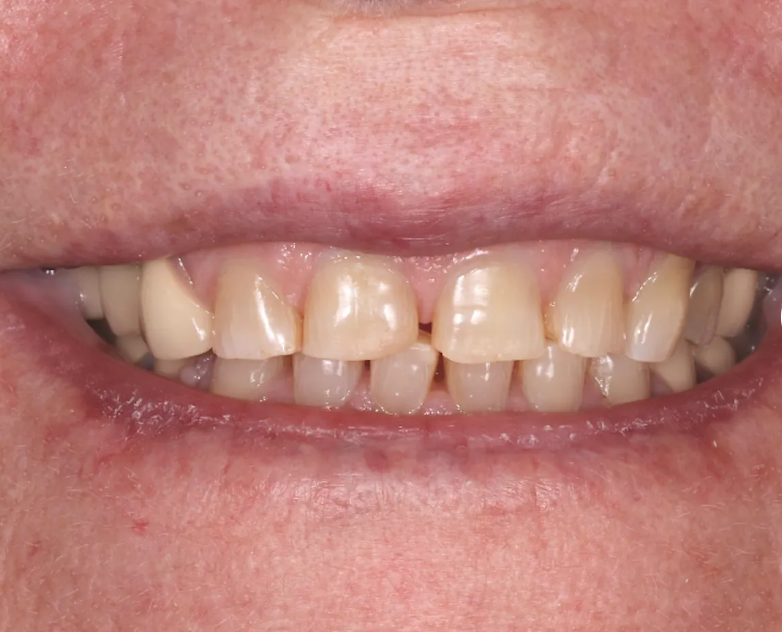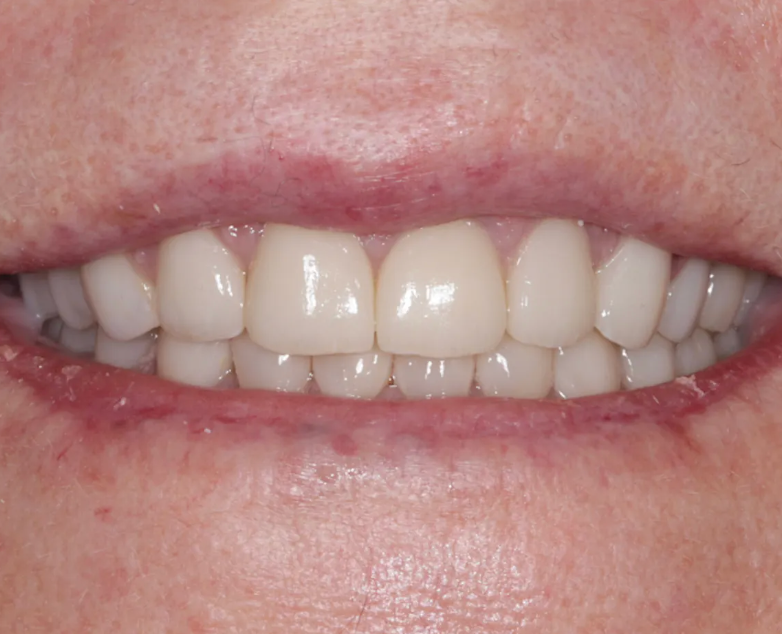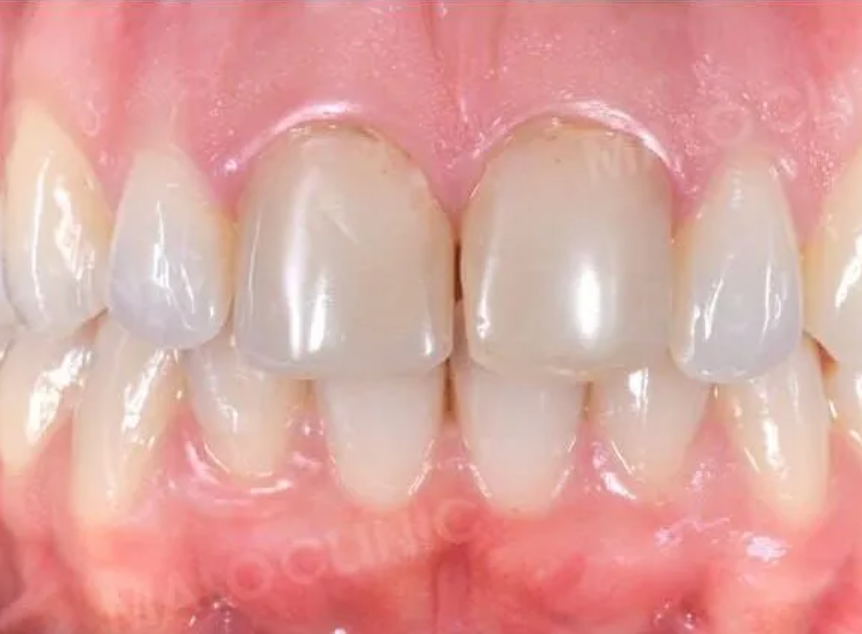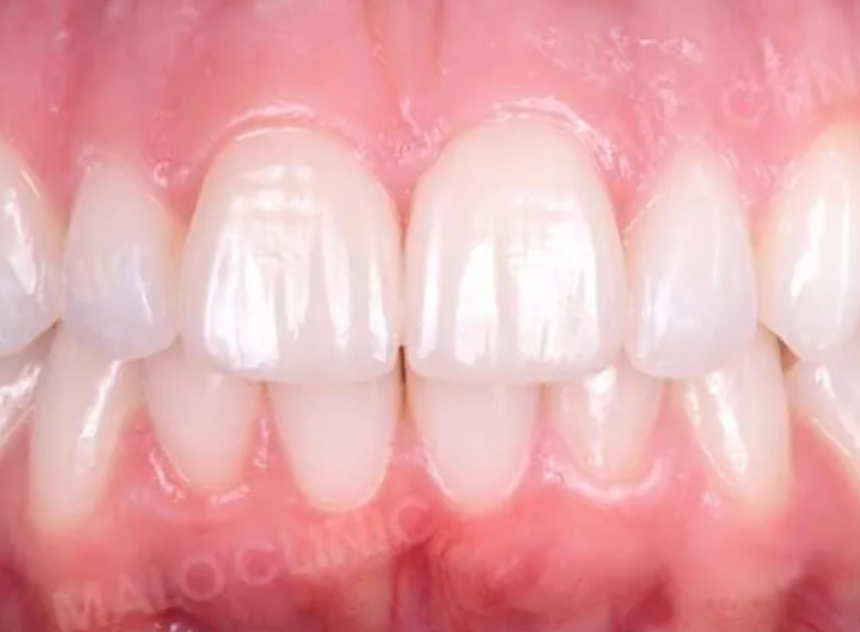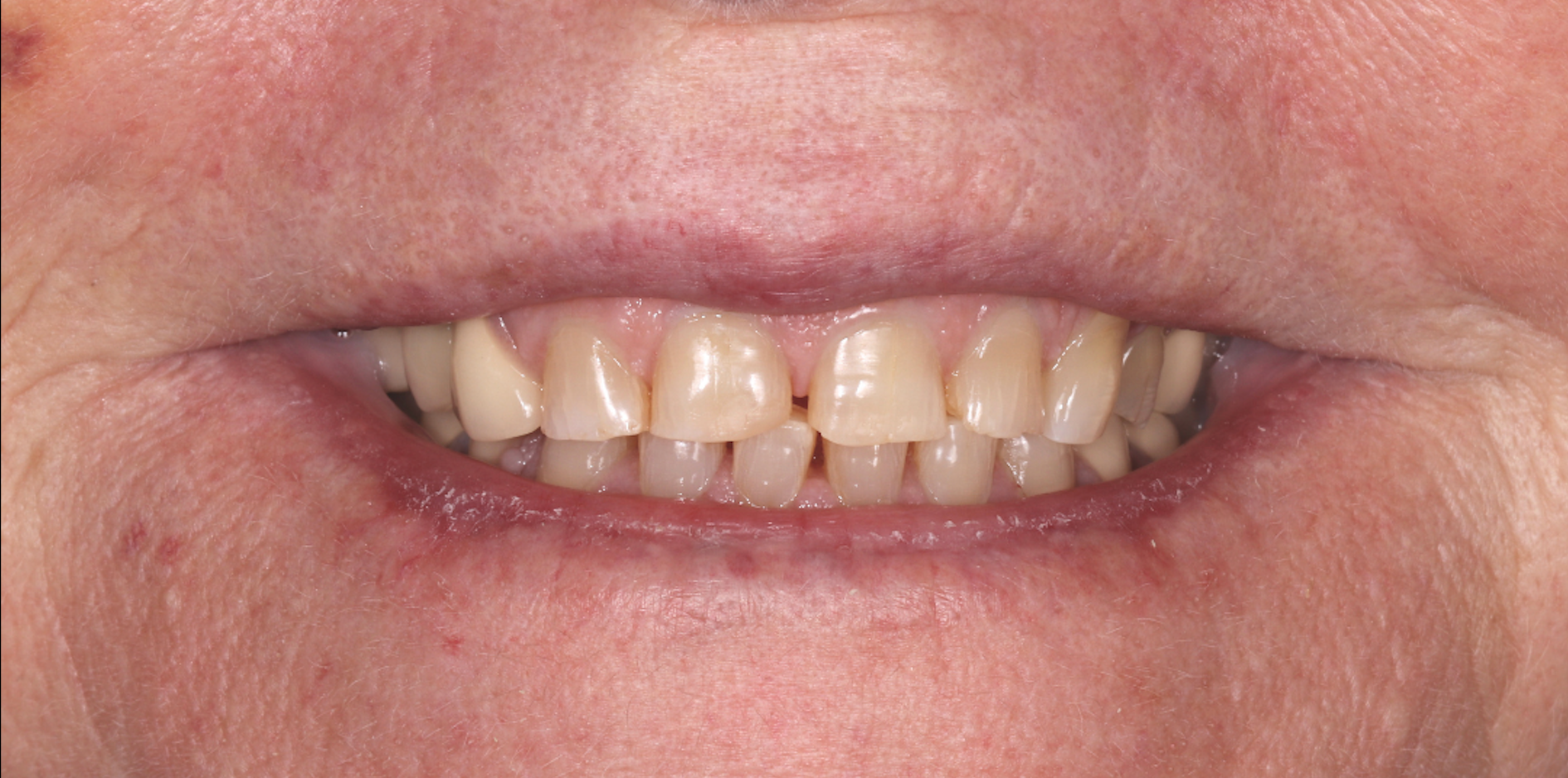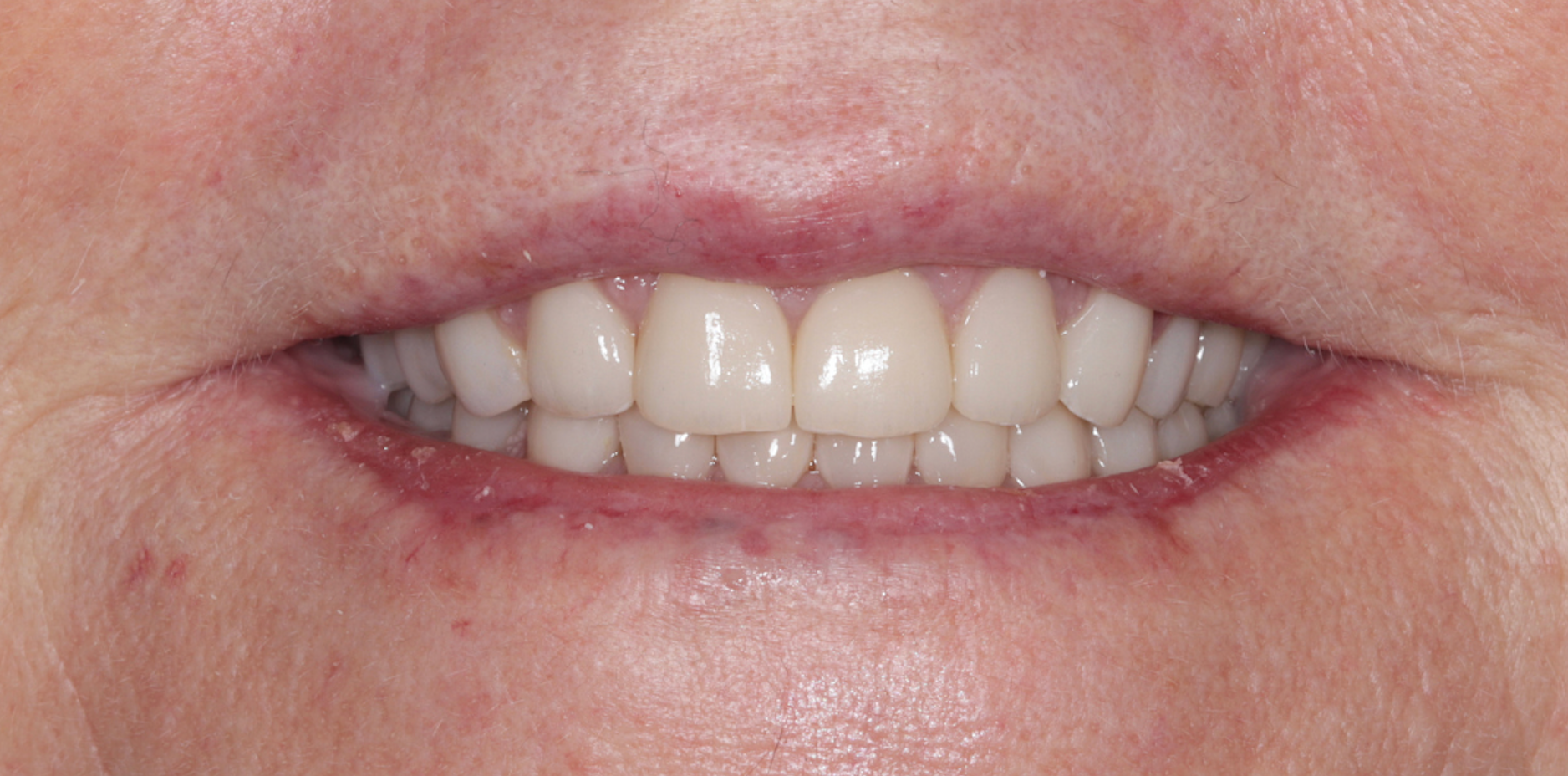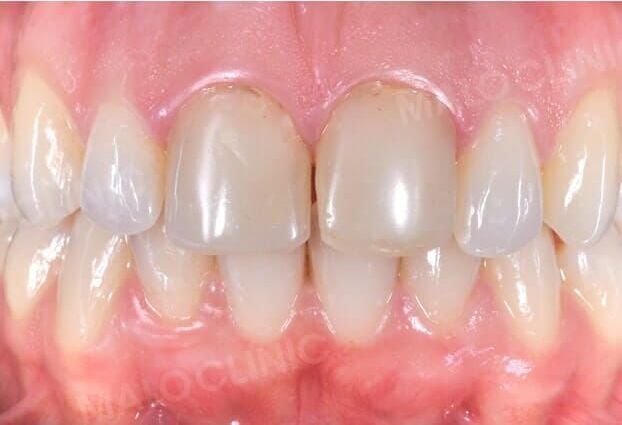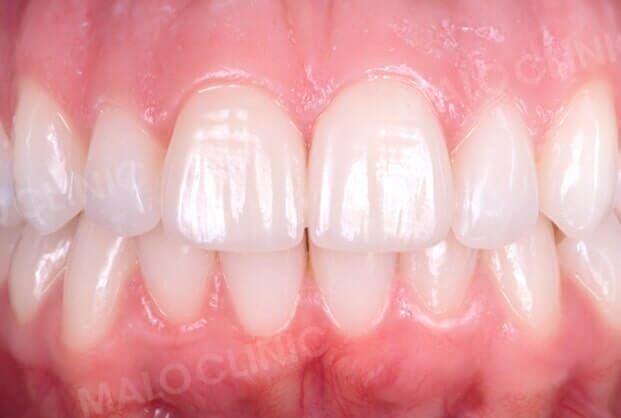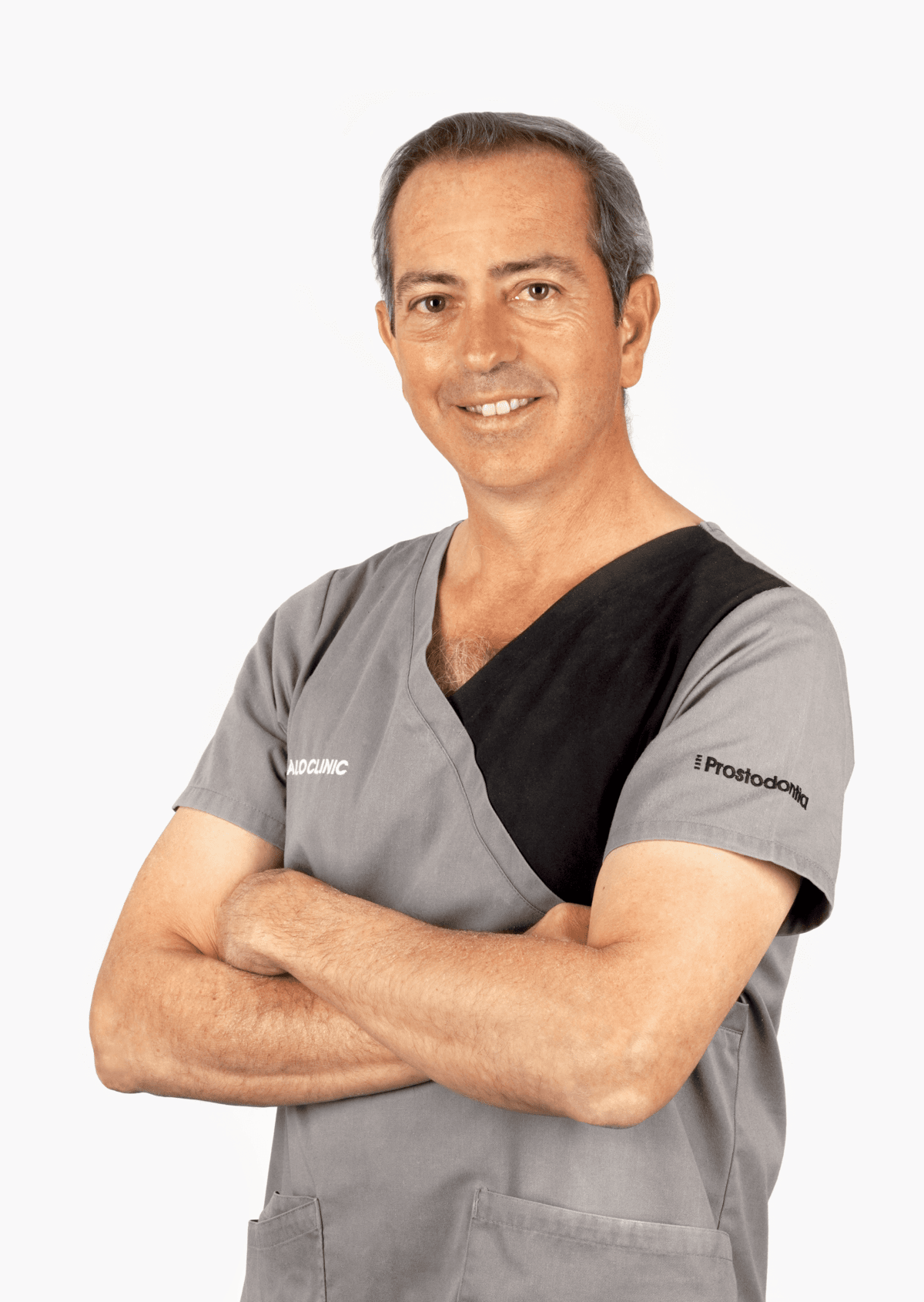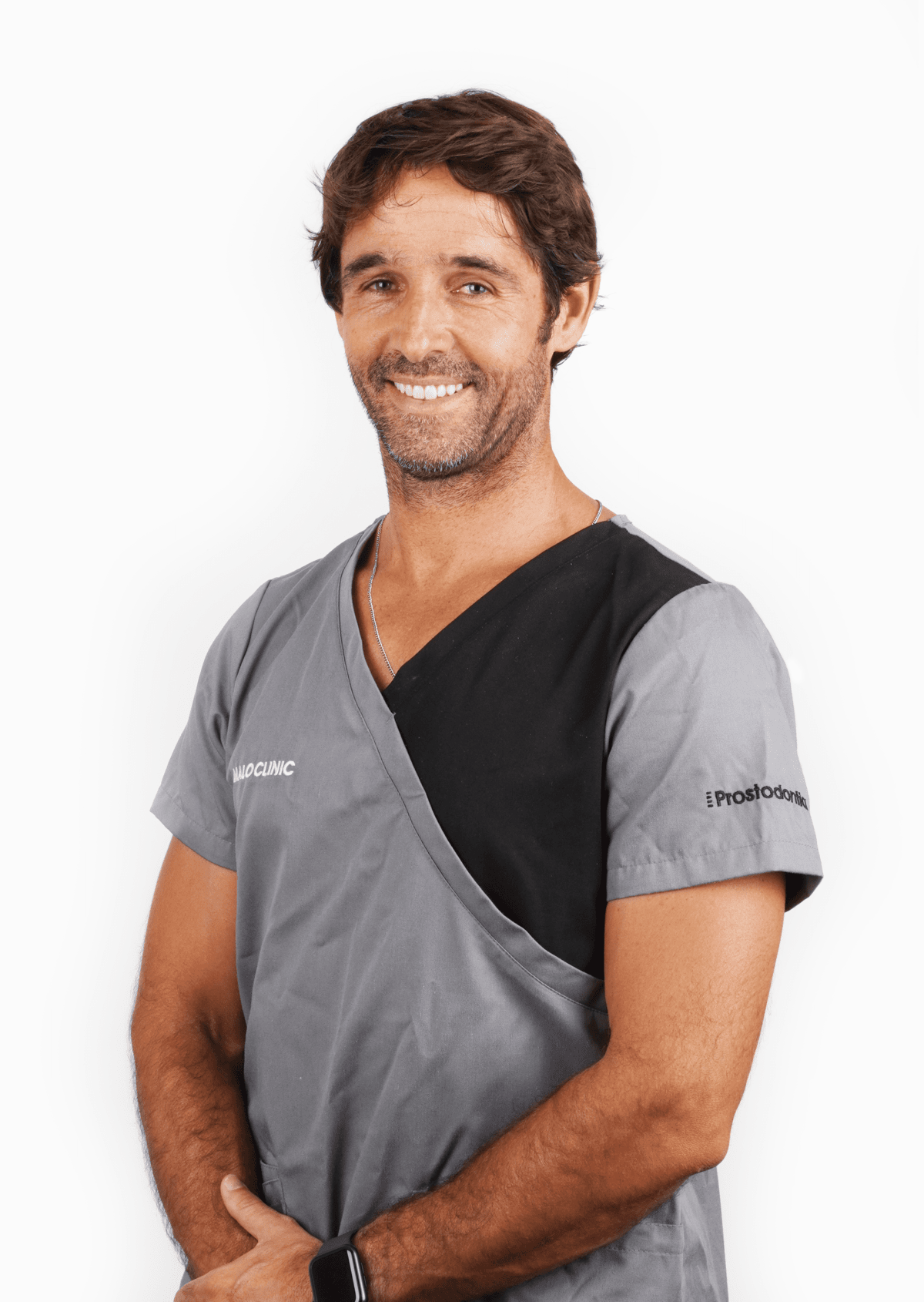Prosthodontics
About the specialty of Prosthodontics
Prosthodontics is the area of dentistry that allows damaged or missing teeth to be replaced, restoring function, health and aesthetics through dental prostheses. Lost teeth can be replaced using fixed dental prostheses or removable dental prostheses on teeth or on implants. In general, fixed dentures are a preferable solution to removable partial dentures or removable complete dentures, not only for their aesthetics and function, but also for the comfort they offer.
Working in close collaboration with other specialties, such as Oral Surgery, Implantology, Endodontics, Dentistry, Orthodontics or Periodontology, Prosthodontics is responsible for restoring oral functions by reconstructing and repairing damaged teeth using dental crowns, or placing dental prostheses (single, partial or total) to replace missing teeth.
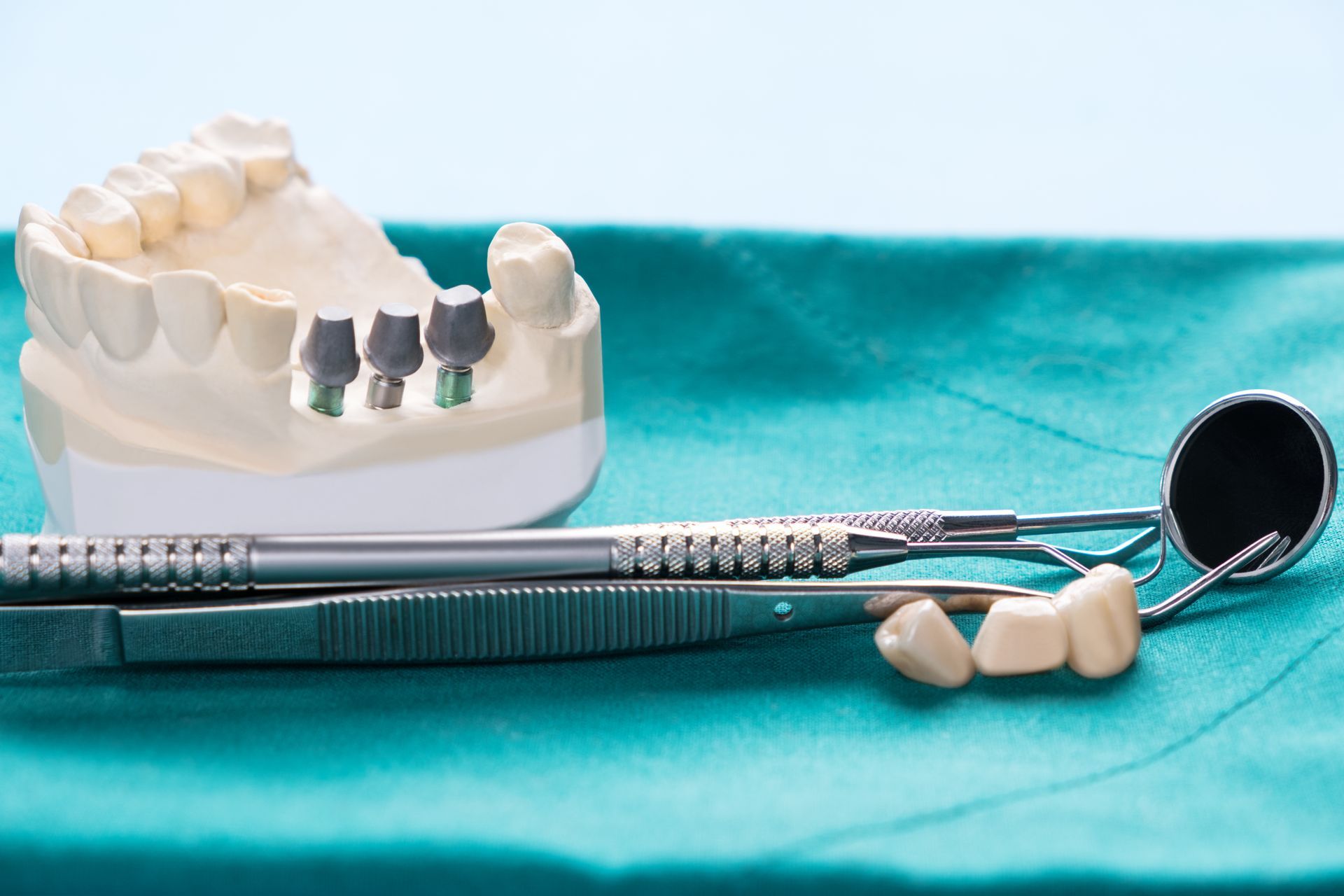
Using the most advanced technological means and excellent materials, at MALO CLINIC the Prosthodontics team practices exclusively in this area and works in conjunction with the technicians at MALO CLINIC Ceramics, a dental laboratory highly specialized in the production of fixed prostheses on implants or natural dentition.
Regardless of the clinical case or the type of prosthesis, at the beginning of the prosthodontic treatment, molds are made or digital images are taken, so that clinical information can be sent to the laboratory. This is followed by the creation of temporary acrylic or composite dental prostheses, which make it possible to maintain oral functions and act as a trial run for the definitive dentition.
In the fitting appointments, the prosthodontist makes the necessary adjustments so that the definitive dental prosthesis guarantees a high level of quality and comfort for the patient.
Benefits of Prosthodontics for Oral Health
Restoring phonetics
Missing teeth can affect speech, resulting in difficulty pronouncing certain sounds. Dentures can help restore clarity of speech, improving communication and social interaction.
Relief from pain and discomfort
For patients with damaged or missing teeth, dentures can help relieve pain and discomfort associated with chewing, speaking and improper tooth movement.
Preservation of facial structure
Tooth loss can lead to bone resorption and decreased facial support, which can result in changes in facial appearance, such as facial wrinkles and lip shrinkage. Well-designed dental prostheses can help preserve facial structure and maintain a more youthful appearance.
Restoring chewing function
Dentures are designed to replace missing or damaged teeth, allowing patients to chew food properly. This not only improves the ability to enjoy a nutritious diet, but also aids digestion and gastrointestinal health.
Improved aesthetics
Dentures can restore the natural appearance of the smile, improving patients' self-esteem and confidence. This is especially important for those facing aesthetic problems due to missing, stained or damaged teeth.
Prevention of oral problems
Replacing missing or damaged teeth can help prevent a range of oral problems, such as movement of adjacent teeth, tilting of neighboring teeth, temporomandibular joint (TMJ) problems and bone deterioration.
Prosthodontic treatments available

Dental Veneers
Dental veneers are thin sheets of ceramic/resin composite that are adhered to the outside of the teeth in order to improve their appearance, whether by changing the shape, color or alignment of the teeth themselves. In this sense, they function as thin contact lenses (restorations), capable of providing excellent aesthetics in a conservative manner, as they involve little or, in some cases, no tooth wear.

Dental Crowns
Dental crowns are individualized fixed prostheses that cover the tooth completely (as a whole), with the aim of providing aesthetics and resistance to damaged dental parts. There are various types of materials available on the market for making dental crowns, ranging from metal, zirconia, ceramic and others.
Dental crowns can also be screwed onto implants, reproducing the same characteristics (shape and aesthetics) as lost natural teeth.

Spikes
Spikes are elements placed inside the root of a structurally compromised tooth, acting as accessories to retain a restoration. They are often used in devitalized teeth that have already suffered significant loss of tooth structure. In this way, the placement of intra-articular posts, by improving the retention and distribution of forces by the root, increases the prognosis and longevity of the rehabilitation of this type of tooth.

MALO Acrylic Bridge (MAB)
MAB is a fixed prosthesis on implants that aims to replace all the teeth in an arch. This dental prosthesis seeks to restore both the teeth and the soft tissues (artificial gums) through an acrylic system that surrounds a highly resistant titanium infrastructure.

MALO Ceramic Bridge (MCB)
The MCB is a fixed prosthesis on implants that is extremely advanced in terms of aesthetics, strength and technology for the rehabilitation of full arches. This type of prosthesis is the ultimate combination of biomedical engineering and technology. It offers patients a functional replica of the natural dentition with individualized ceramic dental crowns, mimicking lost teeth to a high degree of perfection.
Do you wish to know more about Dental Veneers and Crowns treatments?
Clinical Cases
Our Clinical Team is here to help you!
Clinical Team
FAQ's
1. What is the difference between dental veneers, crowns and bridges, and how do I know which is the best prosthodontic treatment option for me?
Dental veneers are thin layers of restorative material, such as ceramic or composite, which are placed on the front surface of the teeth to improve the aesthetics of the smile. They are mainly used to correct aesthetic pathologies such as stained, chipped, misaligned or gapped teeth.
Crowns are protective caps that completely enclose a damaged or weakened tooth, restoring its shape, function and strength. They are recommended for teeth badly damaged by decay, trauma or excessive wear.
Bridges are fixed prostheses used to replace one or more missing teeth, anchored to adjacent natural teeth or dental implants. They are usually applied when there are missing teeth and a fixed restoration is desirable to improve chewing, speech and the aesthetics of the smile.
Determining the best prosthodontic treatment option for a patient depends on factors such as:
- The reason for the prosthodontic treatment (cosmetic, functional or both).
- The condition of the adjacent and supporting teeth.
- The patient's aesthetic preferences.
- The patient's general oral health, including the presence of periodontal disease or cavities.
- A prosthodontic evaluation appointment is essential to assess these factors and determine the best treatment option for each patient.
2. In a prosthodontic treatment, will the dental prosthesis affect my facial appearance and the aesthetics of my smile?
Dentures can have a significant impact on the facial appearance and aesthetics of a person's smile. Here are some of the main aspects to consider:
1- Restoring the Aesthetics of the Smile: Dentures are designed to replace missing, damaged or compromised teeth, restoring the natural appearance of the smile. This can include correcting gaps between teeth, misaligned teeth, stains, chips or other aesthetic defects.
2- Facial Support and Lip Structure: Missing teeth can lead to a loss of facial support and a reduction in the contour of the lips and cheeks. A well-designed dental prosthesis can help restore facial support, filling in gaps and maintaining a younger, healthier appearance.
3- Improved self-esteem and confidence: A harmonious facial appearance and smile have a positive impact on a person's self-esteem and confidence. By restoring the aesthetics of the smile, dentures can help patients feel more secure and satisfied with their appearance.
4- Lip and Cheek Alignment: Tooth loss can lead to the collapse of soft tissues, resulting in thin lips, drooping cheeks and facial wrinkles. A suitable dental prosthesis can help restore the alignment of the lips and cheeks, providing a more youthful and vibrant appearance.
5- Correcting Facial Disproportions: In cases of extensive tooth loss or malocclusion, a dental prosthesis can be part of a comprehensive treatment plan to correct facial disproportions and improve overall facial harmony.
It is important to note that in order to achieve the best aesthetic results from a dental prosthesis, open communication between the patient and the prosthodontist is essential.
Agreements and partnerships
Our Clinical Team is here to help you!


